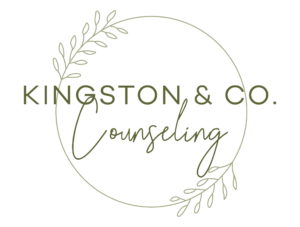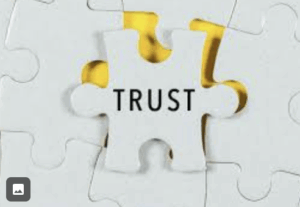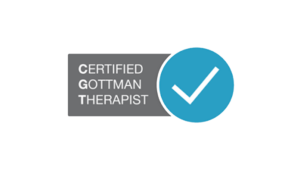Do you ever wake up feeling just as exhausted as when you went to bed? Or find yourself relying on caffeine to get through the day? You’re not alone. Millions of people struggle with chronic fatigue, even when they think they’re getting enough sleep.
So, why are we so tired all the time? The answer isn’t always as simple as “get more rest.” Sleep quality, stress levels, mental health, and lifestyle habits all play a role in our energy levels. In this blog post, we’ll explore the hidden causes of exhaustion and what you can do to finally feel well-rested.
1. Poor Sleep Quality (Even If You’re Sleeping Enough)
Many people assume that if they’re getting 7–9 hours of sleep, they should feel refreshed. But not all sleep is created equal. Poor sleep quality can leave you feeling drained, even if you’re spending enough hours in bed.
Common Causes of Poor Sleep Quality:
🔹 Interrupted sleep – Waking up multiple times during the night reduces deep sleep.
🔹 Screen time before bed – Blue light from phones and tablets suppresses melatonin, making it harder to fall asleep.
🔹 Irregular sleep schedule – Going to bed and waking up at different times confuses your body’s internal clock.
🔹 Caffeine and alcohol – Both disrupt sleep cycles and prevent deep, restorative rest.
How to Fix It:
✔️ Stick to a consistent sleep schedule, even on weekends.
✔️ Avoid screens at least 30–60 minutes before bed.
✔️ Cut back on caffeine in the afternoon and limit alcohol before bed.
✔️ Create a relaxing bedtime routine (reading, stretching, or meditation).
🔗 If anxiety is keeping you up at night, our individual therapy services can help you develop stress management strategies for better sleep.
2. Stress and Mental Exhaustion
Even if your body is well-rested, your mind might not be. Chronic stress, anxiety, and emotional exhaustion can make you feel tired all the time—even after a full night’s sleep.
Why Stress Makes You Tired:
🔹 Overactive mind – Racing thoughts make it hard to fall and stay asleep.
🔹 Cortisol imbalance – High stress levels can keep your body in “fight or flight” mode, preventing deep sleep.
🔹 Emotional fatigue – Carrying emotional burdens drains mental energy just like physical exhaustion does.
How to Fix It:
✔️ Practice stress-reduction techniques like deep breathing, journaling, or meditation.
✔️ Set boundaries to protect your mental and emotional energy.
✔️ Talk to a therapist to process stress in a healthy way.
🔗 Struggling with chronic stress? Our blog on mindfulness strategies for anxiety offers practical ways to calm your mind.
3. Sleep Disorders You Might Not Know You Have
Many people unknowingly suffer from sleep disorders that leave them feeling exhausted, no matter how much they sleep.
Common Sleep Disorders That Cause Fatigue:
🛑 Sleep apnea – A condition where breathing repeatedly stops during sleep, causing poor oxygen flow and frequent wake-ups.
🛑 Insomnia – Difficulty falling asleep or staying asleep, often linked to stress or anxiety.
🛑 Restless leg syndrome – An uncontrollable urge to move the legs, which can disrupt sleep.
How to Fix It:
✔️ If you suspect a sleep disorder, consult a doctor or sleep specialist.
✔️ Keep a sleep journal to track patterns and identify issues.
✔️ Establish a wind-down routine to help signal to your brain that it’s time to sleep.
4. Depression and Chronic Fatigue
Fatigue isn’t always about sleep—it can also be a symptom of depression. Many people with depression experience low energy, sluggishness, and brain fog, even if they’re getting enough rest.
Signs Your Fatigue Might Be Linked to Depression:
🔹 Feeling emotionally drained and uninterested in activities.
🔹 Struggling to get out of bed, even after a full night’s sleep.
🔹 Experiencing brain fog and difficulty concentrating.
How to Fix It:
✔️ Recognize that depression-related fatigue isn’t laziness—it’s a real symptom that needs support.
✔️ Seek therapy to address the underlying emotional causes of exhaustion.
✔️ Incorporate gentle movement like walking or yoga to boost energy levels naturally.
5. Overstimulation from Social Media and Technology
We live in a world of constant stimulation, and our brains rarely get a break. Scrolling TikTok before bed, checking emails late at night, or binge-watching Netflix can overload our nervous system, making it harder to wind down.
How Tech Affects Sleep and Energy:
🔹 Blue light disrupts melatonin production, making it harder to fall asleep.
🔹 Constant notifications keep the brain in a state of alertness.
🔹 Social media scrolling can lead to emotional exhaustion, especially if consuming negative or stressful content.
How to Fix It:
✔️ Set “tech-free” time before bed—at least 30 minutes.
✔️ Use blue light filters or wear blue-light-blocking glasses in the evening.
✔️ Limit social media consumption, especially if it’s causing stress or anxiety.
🔗 Read our blog on TikTok and mental health to learn how social media affects emotional well-being.
Final Thoughts: You Deserve to Feel Rested
If you’re constantly tired, it’s worth looking beyond just how much sleep you’re getting and examining the quality of your sleep, stress levels, mental health, and daily habits. Feeling exhausted isn’t something you have to accept—it’s a sign that your body and mind need care.
At Kingston & Co Counseling, we help clients address sleep issues, stress, anxiety, and emotional exhaustion through personalized therapy. If you’re ready to feel more energized and regain balance, contact us today to schedule a session.
✨ You don’t have to live in a state of exhaustion. Let’s find solutions together. ✨







